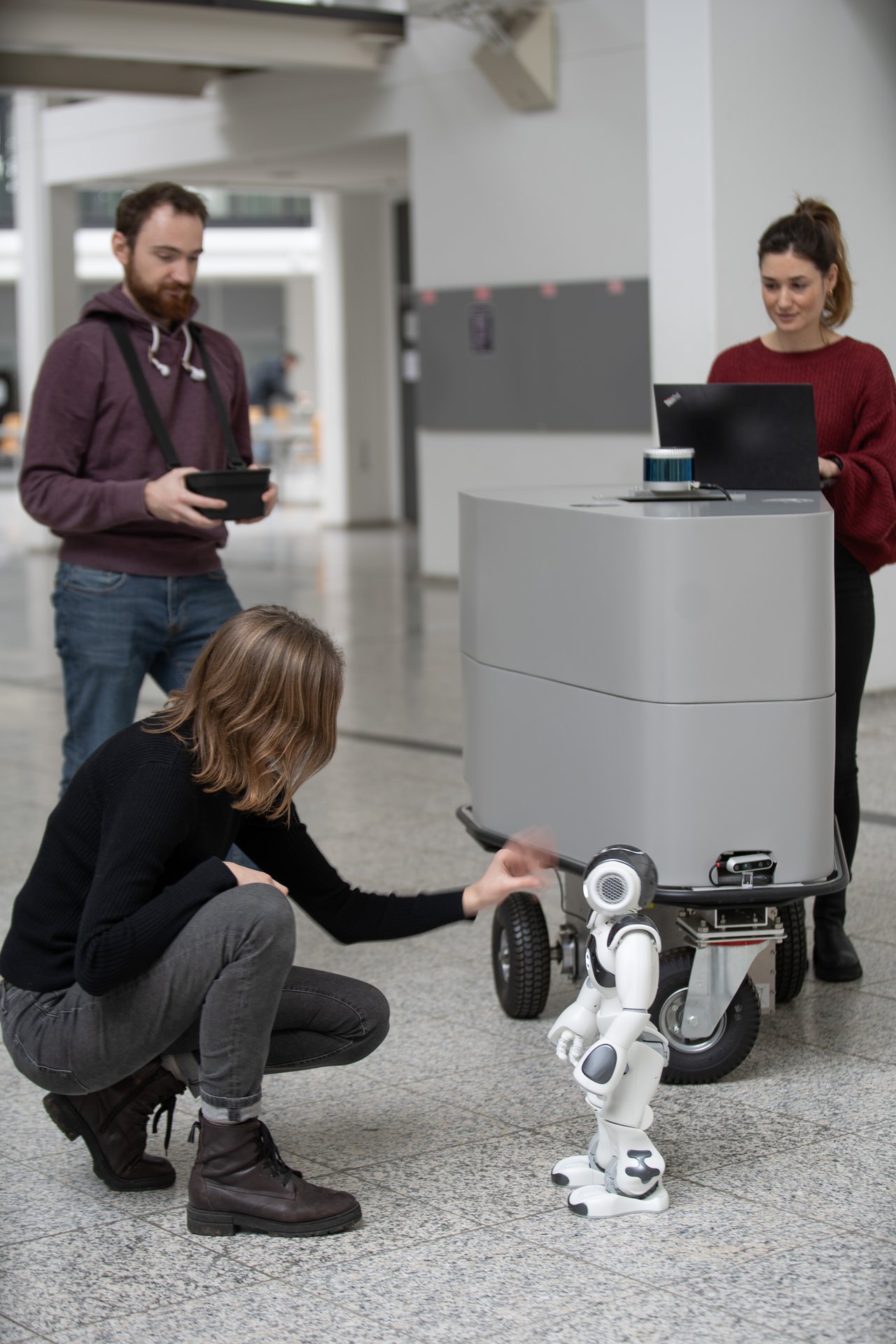Robotics for Life and Healthcare
| Group Leader: | Manuel Ferle and Olivia Herzog |
| Members: |
The interdisciplinary portfolio of the Robotics for Life & Healthcare research group focuses on the research, design and realization of modern concepts of human-robot interaction (HRI) for everyday life and the healthcare sector.
In the course of advancing digitalization and automation, more and more robots are finding their way into everyday life, but also into highly sensitive areas such as the healthcare sector. In the process, humans enter into intensive and multi-layered interactions with these systems. The interactions range from socio-psychological interactions, which occur, for example, in the context of spatial encounters between the actors, to the physical-technical interaction between humans and robots, such as in body-worn assistance systems for motor rehabilitation in medicine. The resulting field of tension describes the sphere of action of the research group.

In social HRI, ergonomic issues concerning communication and coordination of all actors in a given space are central for us. In particular, we are concerned with social and perceptual psychological phenomena and strategies and their transfer to interaction with robotic systems. Furthermore, the perception and acceptance of different robots and their behaviors are in the focus of our research. In the research project "autonomously moving systems - sabeS" (DFG), for example, we are investigating spatial interaction and coordination between humans and mobile service robots – both in virtual reality and in direct comparison with real, physical systems. These questions are relevant for our future, everyday life as well as in the health context, e.g. in hospitals.
With respect to the focus topic of physical human-robot interaction, the focus is on human health. We research interfaces of robot-based systems in medical technology to improve treatment, care, therapy and rehabilitation of patients. The focus is on intuitive and ergonomic design of teleoperation in surgery, biomechanical considerations, as well as human-centered design and development of body-mounted exoskeletal systems for the support and rehabilitation of people with motor impairments.
